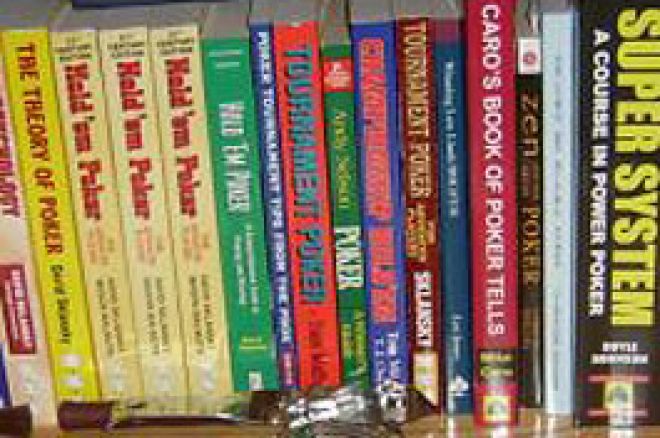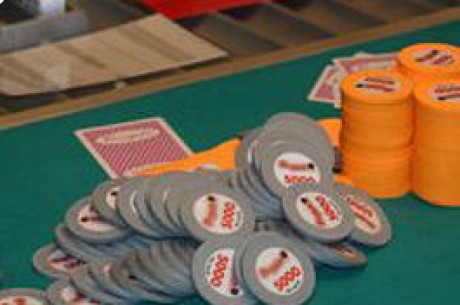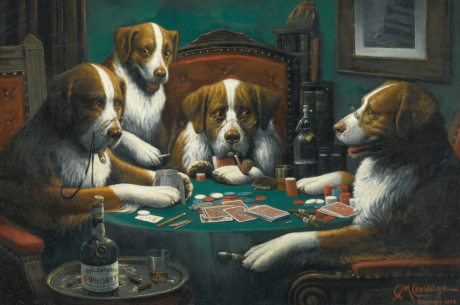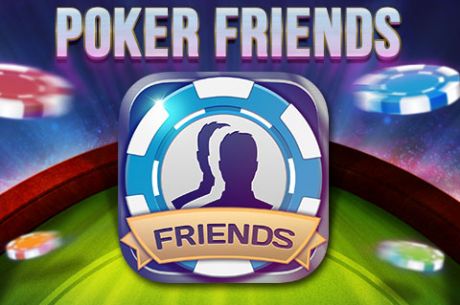Looking 'Outside The Box' For Poker Books

It is one of the things, honestly, that makes my day. Even with the plethora of poker materials that one can find in the bookstores, sometimes it can be just as fun to look over the Internet and find some unique gems that may or may not have made their way into your local Borders or Barnes & Nobles. This happened recently when I came upon D&B Publishing.
D&B Publishing (dandbpublishing.com) is a company located in England that is in the burgeoning poker book market with several offerings. The company crosses the gamut from books to improve your business acumen to bridge publications. It is with their tomes on poker and gambling, however, that D&B caught my eye. With this in mind, I obtained four of the offerings that they had available.
First up for me was "Poker On The Internet," written very well by Andrew Kinsman and available for $19.95 U. S. (12.99 British Pounds). With the first edition of the book, Kinsman has laid out an excellent discussion of the pros and cons of playing poker in the online world. He eloquently points out where online poker has its advantages over its brick and mortar brother and accurately reflects where the Internet game loses some of its appeal. It is a very honest look at the world of online poker that only got better the more that I read into it.
Perhaps the best section of the book was the third chapter dealing with "The Fundamentals of Online Poker". This particular chapter was the highlight for me and would be most beneficial to any new online players. It walks someone through choosing an online room, how to check out (or "work") the lobby to find the game best suited for yourself and even delves into online tells, chatting and whether to play more than one table at a time. It also looks at the potential for cheating and collusion that poker (of any sort, not just the online game) brings out and ways to effectively combat it. It is a benchmark for people who want to play poker online, as it thoroughly looks at all aspects of the online poker experience.
What I found most beneficial was a small chart that detailed out the bankroll amounts that someone should have to play at particular levels of ring game poker. One of the questions that you either hear asked in a casino or on poker forums is how much should someone have to play at a particular stage. "Poker On The Internet" offers an outstanding chart that rates what a player should have in their bankroll from three different angles (Bare Minimum, Recommended, and when a player should "Move Up") for levels of the online game ranging from $.50/$1 up to $30/$60 Limit poker. These are priceless and, for this information alone, made the book well worth the read.
There are a couple of downsides, however. The first edition of the book is a bit outdated. This has been overcome through two methods. A second, updated edition is now on the D&B racks and should reflect the evolution of the game from the first edition to now. There is also a website for the book (pokerupdate.com) that has charted the changes in the poker world since the first edition came out, with comments from Kinsman. If for nothing else, Kinsman has come up with an excellent history of the online game of poker and, with the second edition, should have brought the information up to date and relevant for readers today.
The second book I perused was "How Good Is Your Limit Hold 'Em" from Byron Jacobs and Jim Brier (also available for $19.95 U. S. and 12.99 British Pounds). Jacobs is a frequent online player who has used his experience with online poker in association with Brier (who also collaborated with Bob Ciaffone on his Limit books) to give an excellent test of the "correct" plays. When I say "test", I mean exactly that; there are twenty five hand simulations that have a list of anywhere from six to eleven questions that will analyze your potential movements and grade you on your decisions.
Much like Dennis Purdy's "Illustrated Guide To Texas Hold 'Em", the situations are completely spelled out for you. In a difference from Purdy's book, Jacobs takes you completely through a hand with the questions that are offered. Jacobs' reasons for this are simple as well as very appropriate: poker is not a game played on only one street (as Purdy's book chooses to test) , but on a multitude of levels and, thus, as the cards change, the decisions change.
Jacobs has also taken into account the playing styles of your opponents and uses that information in the questions as well. It is an excellent point that he brings out that there are some plays that will work better against different opponents. The answers to the questions will sometimes change on you, depending on if you know your opponent to be a loose, aggressive player versus a tight, passive one and so on. This brings the most profound point that some do not know about (or ever learn) about poker, that it is a game of people and not robots and, as such, differing styles will bring different reactions.
The twenty five situations are excellently spelled out and, on most occasions, I agreed with some of their choices. There were a couple of times that I didn't like their choices for options in the play of the hand. This, however, could come down to something as simple as personal playing styles and preferences. I would have liked more questions, actually, as limiting it to twenty five was basically just getting me warmed up! The grading scale is also difficult. Be prepared to honestly look at your game and be prepared, once you grade yourself on some questions, to accept that you might have a problem in some phases of your game. Overall, "How Good Is Your Limit Hold 'Em" is an excellent manual for analyzing your game and your reactions at the table, be it online or in the casinos. The situations were realistic and a challenge to your poker playing mind.
D&B Publishing has these two books available as well as much more, which I will definitely be reading (and telling you about!) here soon as well. For those that are perhaps looking for some poker information outside of the mainstream, D&B Publishing could very well be worth a look at dandbpublishing.com.
Ed note: Why read books? Just go out and play today at Hollywood Poker








